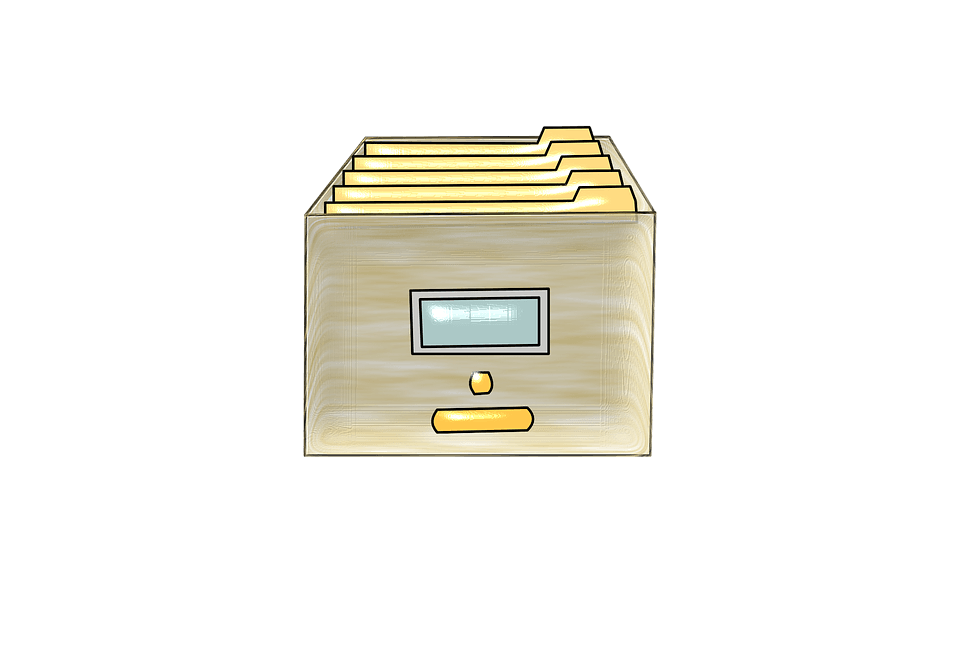Thinking about the aftermath of your own death is not a pleasant activity, but it can be an act of love. Having a will and estate plan that provide for the transfer of your assets upon your death is a critical part of end-of-life planning. However, deciding where to keep estate planning documents so they will be safe and easily accessible to your loved ones is yet another key step.
Creating a love drawer, or legacy drawer, in your home can be a final gift of sorts to your family. A love drawer ensures safekeeping of estate planning documents and simplifies the process of locating your will, estate plan, financial records, and other important information upon your death.
Deciding Where to Keep Estate Planning Documents
When you pass away, it is essential that your executor, family members, and anyone else with legitimate interests in your estate are able to access the documents and other important information you leave behind.
If your will and other documents dictating the distribution of your assets and property cannot be located, your estate may be handled as though you died intestate, or without a will. In these scenarios, assets go through the probate process and are typically allocated to your next-of-kin based on the requirements of the state in which you reside.
This can lead to substantial issues within the remaining family when assets are not transferred as you had intended. Because it centralizes your assets and wishes in a single, easily-accessible location, a love drawer can ease the emotional burden on your family. This is one reason why a legacy drawer is a great tool in estate planning to avoid family disputes.
What Is a Love Drawer?
A love drawer is a secure location, usually in your home, in which you place files related to your estate and financial affairs. Files and information in the drawer should be well-organized and clearly labelled. This will allow your loved ones to easily access all of the pertinent details they will need to set your affairs in order upon your death.
Safekeeping of Estate Planning Documents: What Goes In a Legacy Drawer?
Creating a love drawer is a simple, yet meaningful act. Once you have determined that this method is appealing to you, the next step is to determine what you will place in the drawer and how you will organize the contents.
A person making his or her estate plan signs only one original last will and testament, so it is recommended to store the original in a secure place such as a safe deposit box or a fireproof safe. Before safely storing the original, make at least one photocopy to place in your love drawer.
Some experts, like financial guru Dave Ramsey, who advocates for the use of a legacy drawer, recommend starting with a cover letter that explains the purpose and contents of the drawer to your loved ones. The following items can also be included, and should be organized in a way that makes them easy to access and understand:
- A photocopy of your last will and testament;
- Instructions on where to locate and how to access the original of your last will and testament;
- Documentation of any trusts you have established;
- Details of your wishes, or any pre-planning, for funeral arrangements;
- Insurance policies;
- Retirement or pension accounts;
- Deeds and titles to property;
- Bank and other financial account records;
- Stocks and bonds;
- Locations of and access information for any safes or safe deposit boxes;
- Passwords for any relevant accounts;
- Recent tax returns;
- Details of the locations of any family heirlooms, important historical documents, or other ancestral information; and
- If desired, personal letters to your loved ones
No two love drawers are likely to be the same, because each individual has items, accounts, and assets that are unique, but including the items mentioned above, when applicable, will ensure that the majority of your important documents and materials are accessible to your heirs upon your death.
Additional Considerations about Where to Keep Estate Planning Documents
Safekeeping of estate planning documents should also include a back-up plan. Maintaining copies of the documents in your legacy drawer at alternate locations is wise, especially if you are engaging in estate planning to avoid family disputes.
You can sign more than one original of documents like your will, or you can keep copies in various locations, depending on your preferences and situation. Your attorney might offer to retain copies of your legal documents, in which case you should ask how long those files will be kept in the firm's records.
The executor of your estate is a logical person with whom to entrust your documents, since that person will be among the first to require access to your directives and assets. If you have a corporate trustee or executor, perhaps at a bank, that institution might be willing and able to retain copies of your records.
Your primary care physician should have a copy of any power of attorney documents or living wills that have been created, so those are easily accessible in a medical emergency. If you experience a medical event that leaves you incapacitated and your advance directives cannot be located, medical staff might be required to perform life saving measures, even if you have previously made it known to family members that this was not your wish.
Making a Decision about Where to Keep Estate Planning Documents
Whether you're concerned about estate planning to avoid family disputes or just safekeeping of estate planning documents, creating a legacy drawer can be a relatively simple, effective solution. If you need assistance creating documents or determining your best options about where to keep estate planning documents in West Virginia (WV), Kentucky (KY), or Ohio (OH), the experienced and compassionate attorneys of Jenkins Fenstermaker, PLLC can help. Contact us by calling (304) 523-2100, toll-free at (866) 617-4736, or complete our online contact form.


